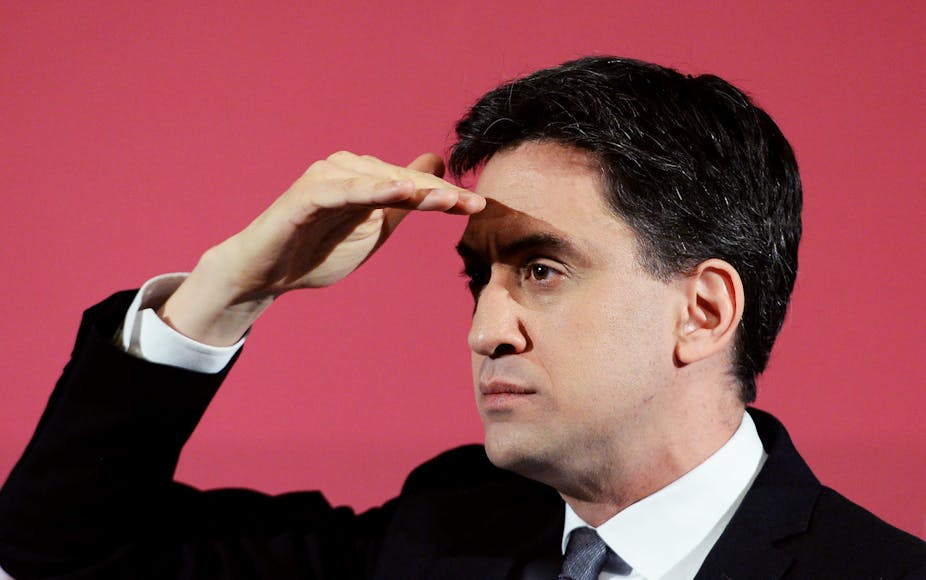There are now so many red lines laid down in the UK election that forming a coalition is going to resemble a scene from Mission Impossible. The Scottish National Party won’t support the Tories, UKIP won’t support Labour, Sinn Féin won’t support (or oppose) anyone.
In one of the biggest stories of this election, Labour has firmly ruled out any deal with the SNP. The party is simultaneously hoping to convince Scottish voters that a vote for Labour is the only way to ditch the Tories, and English voters that a vote for Labour won’t damage the union.
But this is electioneering. If Ed Miliband has any sense, he knows his best option is to work with the SNP in a coalition. Not only will this give him the numbers he needs in the short term but it is the surest way to bring down the SNP in the long term.
Keep your friends close …
The maths are important. Any prime minister will want to have a working majority. Though the UK Constitution enables minority government, a PM would rather not depend on a party that isn’t firmly inside the government tent. They can be fair-weather friends but they need to be part of a team.
The partners also need to share ideological common ground. So is it really plausible that Miliband would refuse a deal with an ideologically similar party like the SNP if it was his only chance to become prime minister? Of course not. His rejection of Nicola Sturgeon’s advances is another electoral strategy. But as an electoral strategy it might not work.
It is pretty insulting to the people of Scotland to suggest that the SNP is persona non grata. The SNP is hardly the Taliban. As Nicola Sturgeon has pointed out, the SNP represents a lot of people in the UK, who are entitled to a say in the governing of their country. This insult might just drive Scottish voters further away from Labour. It might be for this that angry nationalists are targeting Labour campaign events.

If Miliband really wants to save the union and deliver his preferred policies for English voters he should invite the SNP into coalition, and not just a confidence-and-supply deal either. He needs SNP MPs in ministerial positions, running departments.
He should do it not just because it makes good mathematical sense but also because we know government damages parties – and it is especially damaging to smaller parties.
The SNP has an amazing brand. It is simultaneously in government and anti-establishment. It can do this because it is in government but not fully in control of Scotland’s fate. Where it doesn’t do all it promised in government, it can blame Tory cuts across the UK for the failure, continuing to offer the dream of freedom along the way.
Another ten years of this and the SNP could easily lead Scotland out of the union. For this reason, a Conservative-led government is probably the SNP’s most preferred outcome in the 2015 election.
… and your enemies closer
Inviting the SNP into coalition removes that ability. Once in government in Westminster, it can no longer point the finger at London for all Scotland’s ills. SNP ministers will be blamed for making compromises and for the odd policy failure. They won’t be able to advance their independence agenda much (Miliband can refuse a referendum on the grounds that they just had one), and SNP support will begin to wane.
The doctrine of collective responsibility is important here. The SNP must publicly support anything not worth bringing the government down for, and it can’t really advertise its unhappiness – not too much anyway.
If Miliband refuses to deal with the SNP he enables the narrative that London doesn’t regard the Scottish as being truly equal, and that can only increase the demand for independence. It might also force an immediate election on the UK: one that would benefit the Tories.
If he only deals with the party at arms-length, such as in a confidence-and-supply arrangement, the SNP will be able to make a great deal of all the victories it gets, and be seen to force Miliband to compromise in countless eleventh hour negotiations.
Refusing to deal with the SNP is bad politics. It’s too late to do anything about this before polling day, but one has to assume that Miliband isn’t too stubborn to see it’s not in his interest to keep up this attitude when the real work starts next week.

